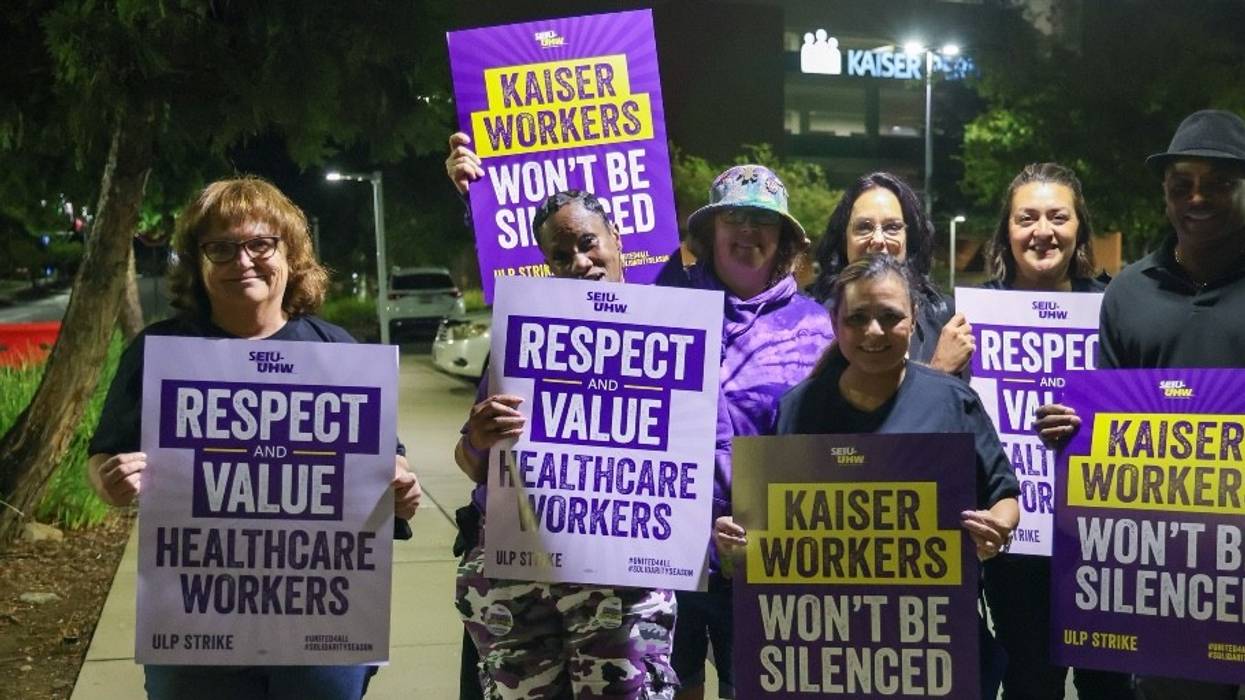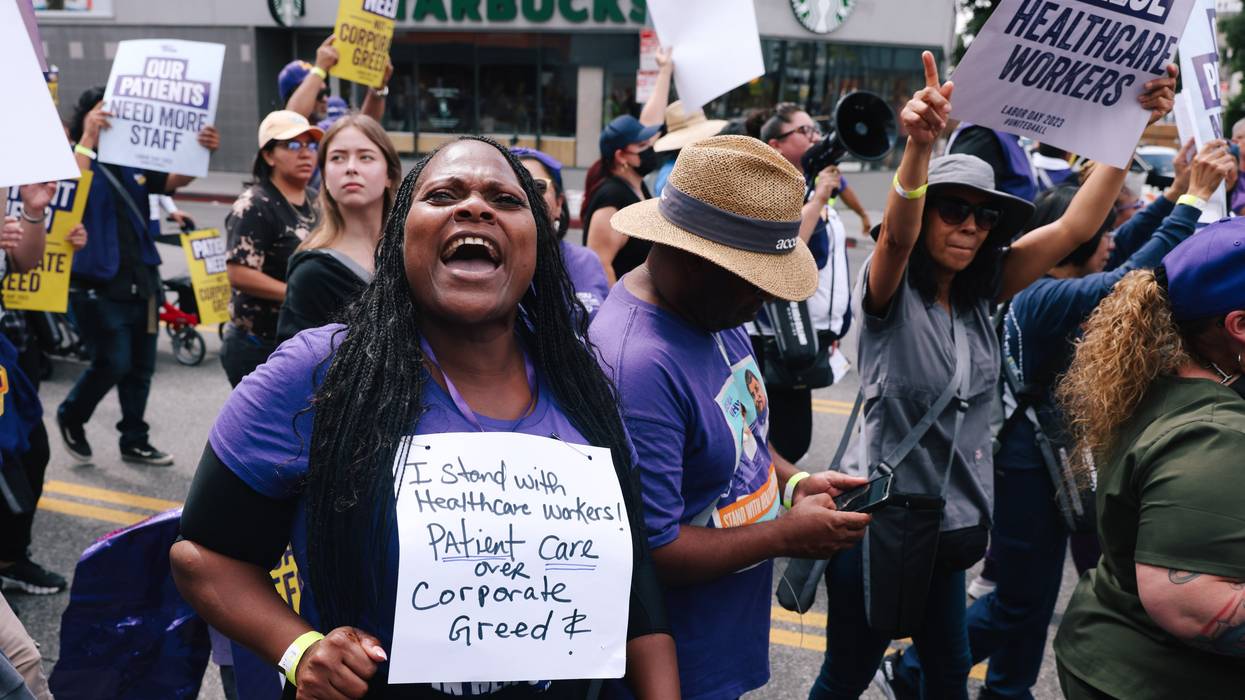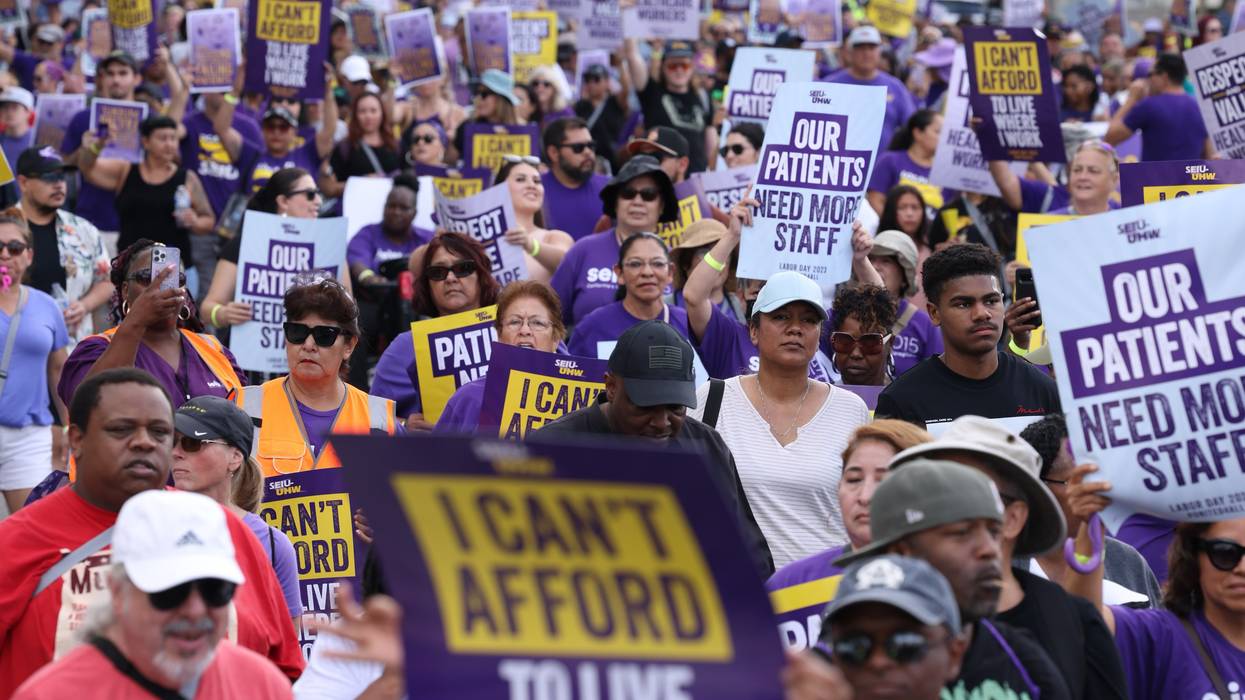Largest Healthcare Strike in US History Begins as Kaiser Workers Revolt
"We have folks getting injured on the job because they're trying to do too much and see too many people and work too quickly," said one union leader, demanding better staffing levels. "It's not a sustainable situation."
Tens of thousands of healthcare workers across the United States began a three-day strike against Kaiser Permanente on Wednesday to protest the nonprofit hospital giant's alleged unfair labor practices, bad-faith bargaining, inadequate wages, and chronic staff shortages that employees say are harming them and patients.
The Coalition of Kaiser Permanente Unions, which represents the 75,000 Kaiser workers who are expected to walk off the job Wednesday, said picket lines will be set up at hundreds of Kaiser hospitals and facilities in California, Colorado, Washington, and other states, as well as in Washington, D.C.
The walkout is expected to be the largest healthcare worker strike in U.S. history.
"Jobs affected by the strike include licensed vocational nurses, emergency department technicians, radiology technicians, ultrasound sonographers, teleservice representatives, respiratory therapists, x-ray technicians, optometrists, certified nursing assistants, dietary services, behavioral health workers, surgical technicians, pharmacists and pharmacy technicians, transporters, home health aides, phlebotomists, medical assistants, dental assistants, call center representatives, and housekeepers, among hundreds of other positions," the coalition said in a statement.
Renée Saldaña, a spokesperson for SEIU United Healthcare Workers West—which is part of the Kaiser union coalition—told the Los Angeles Times that "healthcare workers want to be at the facilities with their patients."
"They're doing this for their patients because of the delays in care, because of the short-staffing crisis," said Saldaña.
The strike kicked off after contract talks between union negotiators and Kaiser—which
reported nearly $3.3 billion in net income in the first half of 2023—stalled Tuesday night without a tentative contract agreement. The previous four-year contract expired at the end of September, and negotiations over a new agreement began in April.
"We continue to have frontline healthcare workers who are burnt out and stretched to the max and leaving the industry," Caroline Lucas, executive director of the Coalition of Kaiser Permanente Unions, told CNBC. "We have folks getting injured on the job because they're trying to do too much and see too many people and work too quickly. It's not a sustainable situation."
Union negotiators have called on Kaiser to hire at least 10,000 new workers by the end of the year to help alleviate staff shortages that—according to a recent survey of healthcare workers in California—have resulted in care being delayed or denied.
Negotiators have also demanded a $25 minimum wage for all Kaiser employees and a
24.5% wage increase over the course of a new four-year contract.
The company has refused to meet many of the unions' core demands, offering wage proposals that
would not even keep up with inflation.
"Kaiser executives are refusing to listen to us and are bargaining in bad faith over the solutions we need to end the Kaiser short-staffing crisis," said Jessica Cruz, a licensed vocational nurse at Kaiser Los Angeles Medical Center. "I see my patients' frustrations when I have to rush them and hurry on to my next patient. That's not the care I want to give. We're burning ourselves out trying to do the jobs of two or three people, and our patients suffer when they can't get the care they need due to Kaiser's short-staffing."



